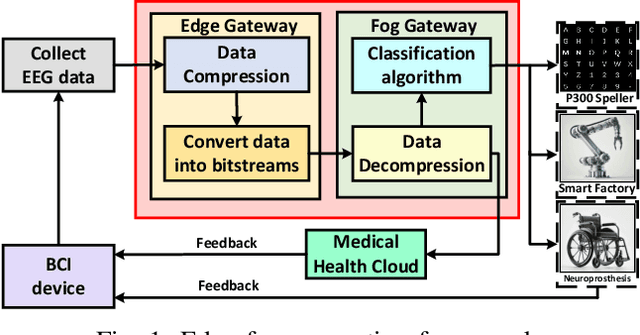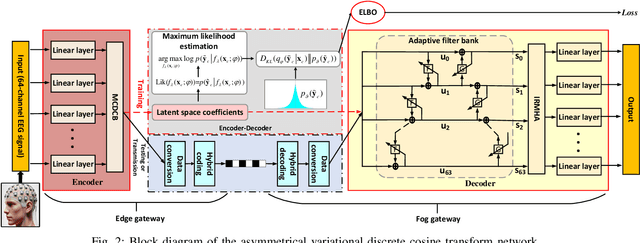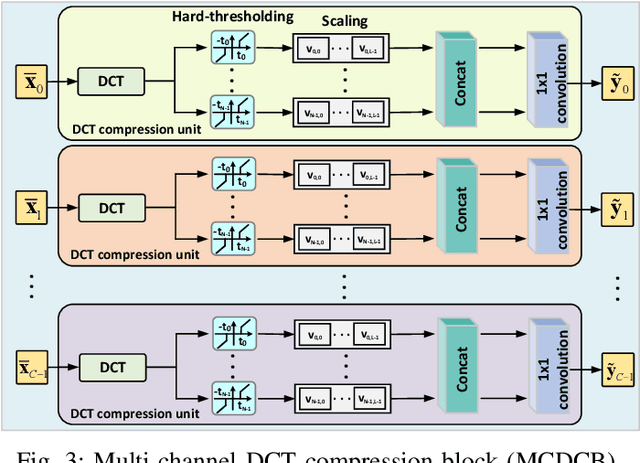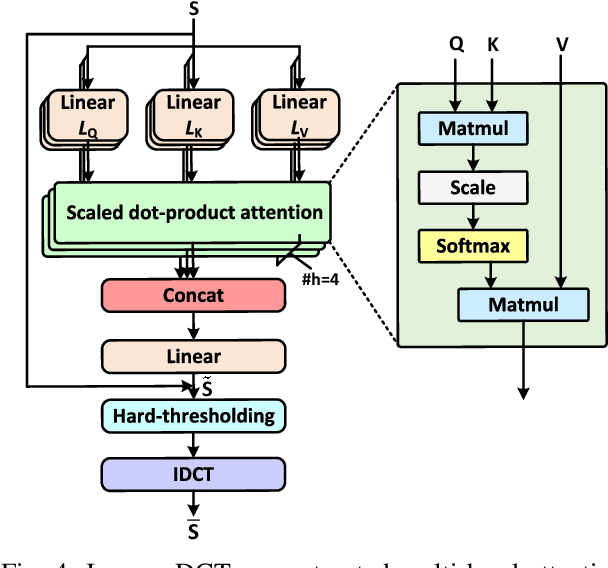Edge-Fog Computing-Enabled EEG Data Compression via Asymmetrical Variational Discrete Cosine Transform Network
Paper and Code
Mar 13, 2025



The large volume of electroencephalograph (EEG) data produced by brain-computer interface (BCI) systems presents challenges for rapid transmission over bandwidth-limited channels in Internet of Things (IoT) networks. To address the issue, we propose a novel multi-channel asymmetrical variational discrete cosine transform (DCT) network for EEG data compression within an edge-fog computing framework. At the edge level, low-complexity DCT compression units are designed using parallel trainable hard-thresholding and scaling operators to remove redundant data and extract the effective latent space representation. At the fog level, an adaptive filter bank is applied to merge important features from adjacent channels into each individual channel by leveraging inter-channel correlations. Then, the inverse DCT reconstructed multi-head attention is developed to capture both local and global dependencies and reconstruct the original signals. Furthermore, by applying the principles of variational inference, a new evidence lower bound is formulated as the loss function, driving the model to balance compression efficiency and reconstruction accuracy. Experimental results on two public datasets demonstrate that the proposed method achieves superior compression performance without sacrificing any useful information for BCI detection compared with state-of-the-art techniques, indicating a feasible solution for EEG data compression.
 Add to Chrome
Add to Chrome Add to Firefox
Add to Firefox Add to Edge
Add to Edge